
AMERICAN Magic's AC75 Patriot glides through the water near Pensacola, Florida, and as it picks up speed with the day's favorable winds, the imposing dark hull rises from the water and begins to plane on its hydrofoils. Crouched near the bow, pedaling furiously, John Croom is lashed by spray. His earpiece crackles with chatter from the rest of the crew. He has watched videos of America's Cup boats. He's logged hundreds of hours of training on land. But this is his first timehis first time on any sailboat.
"Still to this day, that's one of the most euphoric moments I've ever had in my career," Croom says. "Getting the opportunity to sail, and then just feeling that actual takeoff and being on the foils was something super special. That was the day I fell in love with it." While some of sailing's traditionalists bristle at the inclusion of cyclors in lieu of grinders on America's Cup boats, there's no turning back now. The technology will be found on every boat in the 2024 America's Cup.
This novel power-delivery method has opened the door for newcomers like Croom to hop aboard, like throwing a drivers-ed student into a Formula 1. It has also led to a revolution in the way America's Cup teams recruit talent, hone their physiological training, and use cycling know-how to power the AC75's hydraulic controls.
"We're finding that cyclors bring much more power to the table," says Ben Day, American Magic's performance lead. "Cycling uses much bigger muscle groups; therefore, they can produce more power than arm grinders. And with the new AC75 regulations of reducing crew numbers (eight sailors total), we need to find that power in other ways. So, most teams are looking at cyclors at this stage. Glutes, quads and hamstrings can produce more explosive power and more power for a longer sustained period."
Diese Geschichte stammt aus der Spring 2023-Ausgabe von Sailing World.
Starten Sie Ihre 7-tägige kostenlose Testversion von Magzter GOLD, um auf Tausende kuratierte Premium-Storys sowie über 8.000 Zeitschriften und Zeitungen zuzugreifen.
Bereits Abonnent ? Anmelden
Diese Geschichte stammt aus der Spring 2023-Ausgabe von Sailing World.
Starten Sie Ihre 7-tägige kostenlose Testversion von Magzter GOLD, um auf Tausende kuratierte Premium-Storys sowie über 8.000 Zeitschriften und Zeitungen zuzugreifen.
Bereits Abonnent? Anmelden
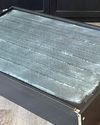
Tips for More Successful Epoxy Projects
That have nothing to do with epoxy mixing or application techniques
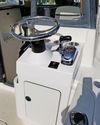
Auxiliary Rear Station Build
From past fishing experiences, I've learned that quick changes in speed and direction are often required when retrieving a hooked fish.
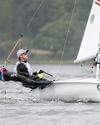
TARGETED PERFORMERS
Defending their title at the 420 Youth Worlds in July, Freddie Parkin and Asher Beck were on a roll-until they weren't.
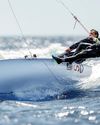
BALANCE ON THE PINNACLE
The path to gender equity in the Olympics has been a long and twisted one, but when the sailors assemble in Marseille next year, we'll finally see what's been a long time coming.
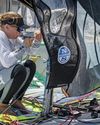
SIMPLE STEPS TO CONSISTENT SPEED
Boatspeed is the magic ingredient for winning races because we can get away with bad decisions if we are fast, but we can't make good choices if we're slow.
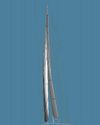
THREE-DIMENSIONAL JIB-LEAD ADJUSTMENTS
Floating jib leads give trimmers more dynamic control of the headsail profile.
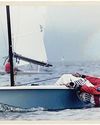
BETTER TOGETHER
Success over three decades comes down to making it meaningful.
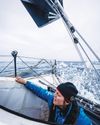
JUSTINE THE MACHINE
This self-effacing Swiss sailor has-in her quiet and understated way become one of the stars of offshore ocean racing in recent years, whether as part of a winning crew in The Ocean Race or building her credentials as a top-class solo racer.
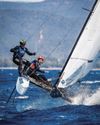
THE MULTITASKING MULTIHULL MOM
Competing in Olympic sailing's most challenging discipline is one thing, but doing so with a tyke in tow takes the campaign hustle to a higher level.
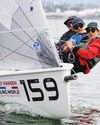
CONNECTED COAST TO COAST
From sunny St. Pete to historic Marblehead, the 34th edition of the Regatta Series linked sailors and friends across the country, with a few new twists.